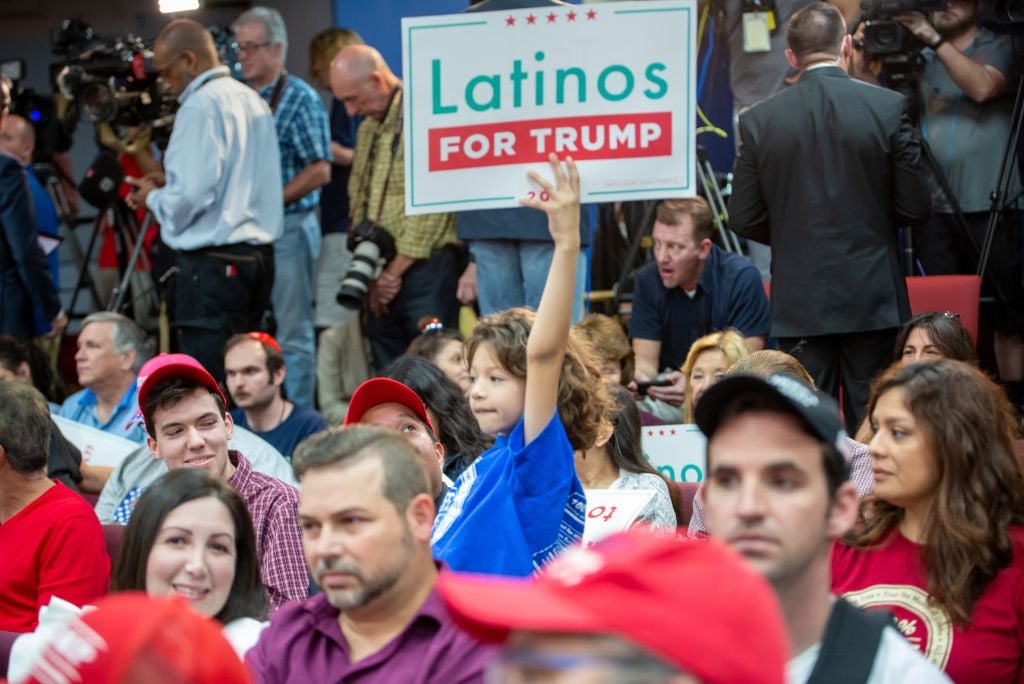Key data on Hispanic voters eligible in 2024 highlights the rapid growth of this electorate. Since the 2020 presidential election, the number of eligible Hispanic voters in the U.S. has increased by nearly 4 million. By 2024, an estimated 36.2 million Hispanics will be eligible to vote, up from 32.3 million in 2020. This accounts for half of the total growth in eligible voters nationwide during this period. Each year, approximately 1.4 million Hispanic Americans turn 18, becoming eligible to vote and significantly boosting the Hispanic voter base.
While Donald Trump saw increased Hispanic support in 2020, a majority (59%) still voted for Joe Biden, according to a Pew Research Center analysis. Historically, Hispanic voter turnout has lagged behind other racial and ethnic groups, but their increasing numbers could shape future elections. Projections from the U.S. Census Bureau show that the Hispanic electorate continues to expand, with demographic data available for in-depth analysis. This growing voting bloc will play a crucial role in determining the outcome of the 2024 election and beyond. A Quinnipiac national poll shows Trump leading among Hispanic voters with 52% compared to his opponent’s 44%.
Hispanics, a key voting demographic in the U.S., have traditionally supported the Democratic Party. However, recent elections have seen a shift, with more Hispanics backing Republican candidates, including Trump. Several factors may explain this trend and why it could continue in 2024, potentially aiding Trump’s return to the White House.
Many Hispanic voters list the economy as their top priority, with some believing that Republican policies are better for job creation, tax cuts, and economic stability. During Trump’s presidency, some Hispanics felt they benefited from strong economic growth and low unemployment, which led to increased Republican support.
Social issues, including religion, abortion, and family values, significantly influence the political views of many Hispanics. With a large portion of the Hispanic population identifying as Catholic or Evangelical Christian, these voters often align with the conservative positions of the Republican Party, especially as the Democratic Party adopts more progressive stances.
Some Hispanics feel alienated from the Democratic Party, viewing it as overly focused on issues like climate change or identity politics, which don’t resonate with their everyday concerns. Others feel that the Democratic Party has taken their support for granted without delivering on key issues such as immigration reform.
Trump’s appeal to working-class voters, including many Hispanics, stems from his outsider status and willingness to challenge the political establishment. His populist rhetoric, emphasis on economic nationalism, and firm stance on border security resonate with Hispanic voters who prioritize law and order or feel left behind by globalization.
The Hispanic electorate is diverse, and political views within the community vary. For instance, Cuban Americans in Florida have traditionally leaned Republican, while Mexican Americans in Texas and other states have been more Democratic. Yet, Trump gained support among both groups in 2020, suggesting a broader shift in political alignment.
While immigration has historically been a key issue for Hispanic voters, it is not always their top priority. Some Hispanics, especially second- and third-generation immigrants, may focus more on the economy, education, or healthcare. Additionally, Trump’s tough stance on immigration appeals to certain segments of the Hispanic community who support stricter border control and law enforcement.
The Republican Party has ramped up its outreach to the Hispanic community, particularly in states like Texas and Florida. By investing in Spanish-language media, community events, and grassroots efforts, Republicans have weakened the Democrats’ hold on Hispanic voters.
The shift of Hispanic voters toward the Republican Party and Trump presents a significant challenge for Democrats. If this trend continues into 2024, it could reshape the electoral landscape, giving Trump and the GOP a stronger chance of winning key states with large Hispanic populations, such as Florida, Texas, Arizona, and Nevada.
I had the opportunity to discuss this and more last week on Real America’s Voice. Watch the clip:
María Herrera Mellado es una abogada de EE.UU. y licenciada en España. Doctora en Ciencias Jurídicas y Analista política. La Dra. Herrera es conocida por su amplia experiencia en análisis y consultas en el diseño de políticas públicas, propuestas de ley y gestión en relaciones internacionales.
Su reconocimiento proviene de sus contribuciones al análisis y representación legal de diversas organizaciones, empresas e individuos que han visto abusados sus derechos humanos, su privacidad o en la inclusión de políticas efectivas fundamentalmente en el ámbito de la transparencia y la rendición de cuentas, así como la lucha contra la corrupción.
Su formación académica y experiencias profesionales la convierten en una voz respetada en el debate público y en el análisis de temas de actualidad sobre todo en los desafíos políticos y legales contemporáneos.
María Herrera Mellado is a U.S.-based attorney also licensed in Spain. She holds a PhD in Legal Sciences and is known as a media legal and policy analyst.
Dr. Herrera is recognized for her extensive experience in analyzing and consulting on public policy design, legislative proposals, and international relations management.
Her recognition stems from her contributions to the analysis and legal representation of various organizations, companies, and individuals whose human rights or privacy have been violated, or who have benefited from the inclusion of effective policies, primarily in the areas of transparency, accountability, and the fight against corruption.
Her academic background and professional experience make her a respected voice in public debate and in the analysis of current issues, particularly in contemporary political and legal challenges.


